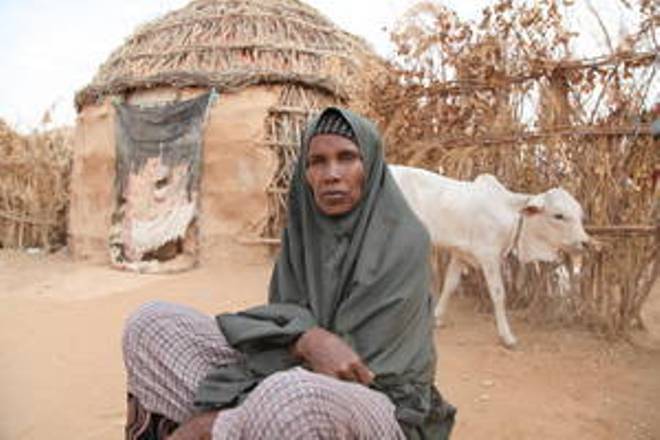
Friday September 1, 2017
Survival priorities are clear for livestock owner Mohamed: "I need to save my animals to sustain my life," he says, sitting outside his thatched home in Dolobat village in Somali region.
This part of Ethiopia's south-east is gripped by a devastating drought: rains have failed for the third consecutive year which has caused hunger to soar and malnutrition rates to rise to alarming levels.
The drought has already killed 70 of Mohamed's goats and six cows. He and his family now rely on emergency food support, and are desperately trying to keep their remaining few cows alive. "Everything is in the hand of God," he says.
advertisements
Another villager, Sarah Ahmed, has lost 50 cattle and sheep to the drought. The lack of water also means she can no longer farm, and so the mother of seven relies on emergency food aid for her family. Sarah too believes that saving her animals is vital for the family's well-being. "If I am supported to grow fodder, I can save my animals". FAO has been proactive in responding to the needs of livestock-owning households. So far, the Organization has assisted almost half a million people with emergency livestock feed, treatments to prevent disease and destocking operations. Destocking means buying weak animals at a fair market price, then using the meat from these purchases to help the most-vulnerable families facing malnutrition.
More than 8.5 million Ethiopians require food assistance in the second half of 2017. But the current food security and nutrition crisis cannot be resolved by emergency assistance alone. The longer-term solution lies in building communities' resilience to better withstand shocks and avoid being plunged back into crisis.
The heads of the three UN food agencies, José Graziano da Silva from the Food and Agriculture Organization (FAO), Gilbert F. Houngbo from the International Fund for Agricultural Development (IFAD) and David Beasley from the World Food Programme (WFP) are in Ethiopia from today to witness the scale of the crisis, and to discuss how best to strengthen their support to the Government so that Ethiopia can address the growing humanitarian needs and invest in limiting the impact of future crises.